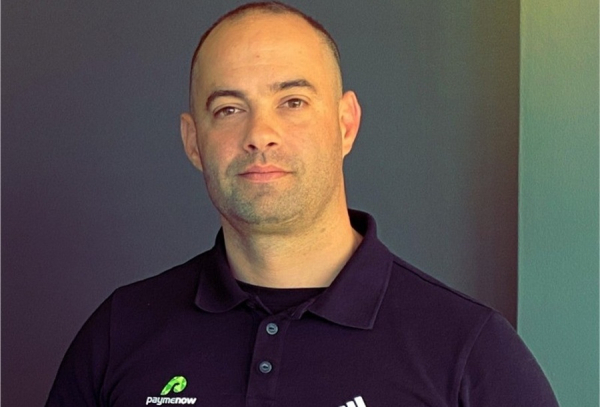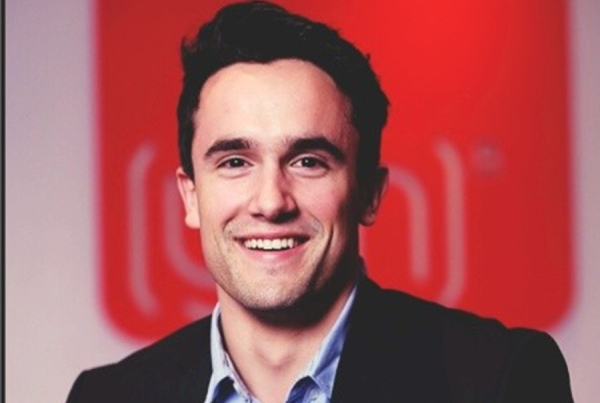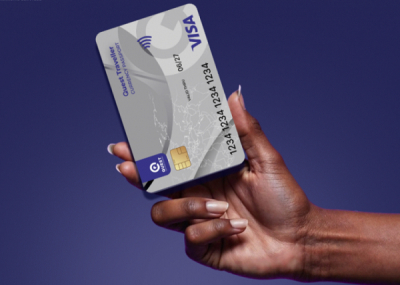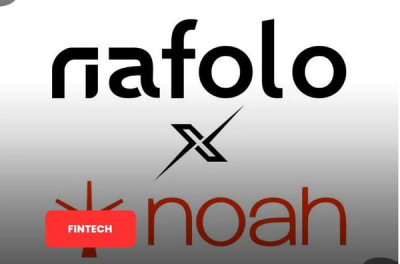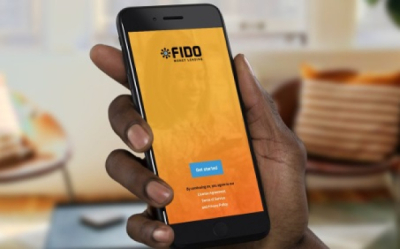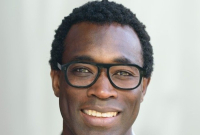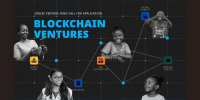-
Deon Nobrega co-founded Paymenow Group in 2019 to reduce employee reliance on high-cost credit.
-
The company offers earned wage access, digital vouchers and financial education tools.
-
Nobrega previously held senior roles at Investec and Absa before launching the fintech venture.
Deon Nobrega serves as Chief Executive Officer of Paymenow Group, a company he co-founded in 2019 with Bryan Habana, Willem van Zyl, Gerry Potgieter and Garth Mackintosh. The firm provides a financial wellness solution for employees that combines technology and financial education to improve income management.
Paymenow Group develops a mobile application and an online platform that help employees manage their budgets, reduce reliance on credit and strengthen financial stability. Users can check their available balance, request salary advances and track transactions in real time. Users can also purchase essential goods such as food and electricity through vouchers, which allow them to cover basic needs without resorting to costly borrowing.
The platform promotes responsible money management through savings tools and options that allow users to place funds in interest-bearing accounts. The company also delivers financial literacy training modules, interactive educational content and personalized support to help employees adopt sound financial habits and build long-term financial resilience.
Deon Nobrega earned a bachelor’s degree in computer science in 2003 from the University of Johannesburg. He earned a bachelor’s degree in electrical and electronic engineering from the same university in 2004. He later completed an introductory course in big data in 2016 at the Massachusetts Institute of Technology.
Nobrega began his professional career in 2004 at HLB-NGA, a South African software design and deployment company, where he worked as a software engineer. He joined Investec in 2006 as a business analyst in information technology. He moved to Absa Group in 2008 in the same role. He rose through the ranks at Absa, becoming Head of Foreign Exchange Sales in 2012 and Head of Digital Markets in 2015.
This article was initially published in French by Melchior Koba
Adapted in English by Ange J.A de Berry Quenum
-
Michael Louis founded Cerebrium in 2021 to automate AI application deployment and scaling.
-
The platform supports real-time voice assistants, multimodal systems and large-scale data processing.
-
Cerebrium operates on a pay-as-you-go pricing model that charges users based on actual consumption.
Michael Louis is a South African entrepreneur and engineer specializing in artificial intelligence infrastructure. He founded and leads Cerebrium, an online platform that helps teams build AI applications more easily.
Louis founded Cerebrium in 2021 with the mission of helping users create artificial intelligence products “that people love” while simplifying operational complexity. The platform supports various types of applications, including real-time voice assistants, multimodal systems that combine text, image and audio, and large-scale data processing workloads.
Cerebrium’s value proposition focuses on transforming a typically long and complex process — deploying, maintaining and scaling AI applications — into a streamlined and automated experience. Applications built on Cerebrium can launch quickly and can automatically adjust capacity based on demand, enabling them to handle a high volume of simultaneous requests. The platform also differentiates itself through a usage-based pricing model that allows customers to pay only for actual consumption without locking up idle resources.
Before founding Cerebrium, Louis co-founded Sxuirrel in 2016 and served as Chief Technology Officer until 2019. The company developed an interactive mobile application that connected individuals seeking storage space with those offering available space.
Louis graduated from Stellenbosch University with a bachelor’s degree in mathematics and computer science in 2016 and a bachelor’s degree in data science in 2018. From 2019 to 2021, he worked at OneCart, a South African online grocery delivery company, where he served as Lead Developer and later as Chief Technology Officer.
This article was iniitally published in French by Melchior Koba
Adapted in English by Ange J.A de Berry Quenum
-
Malawi seeks a bilateral agreement with Ghana to replicate its digital transformation model.
-
Ghana plans to lead a delegation of 15–20 tech firms to Malawi to deploy ID, fintech and e-government solutions.
-
Malawi ranks 163rd on the UN E-Government Development Index, while Ghana ranks 108th and leads Africa in cybersecurity tier classification.
Malawi is seeking to leverage Ghana’s expertise to fast-track its digital transformation. Officials expressed this interest on the sidelines of the Mobile World Congress 2026, which took place in Barcelona from March 2 to March 5 and gathered government delegations and global digital industry players.
Malawi’s Minister of Information and Digitalisation, Shadric Namalomba, invited Ghana’s Minister for Communication, Digital Technology and Innovations, Samuel Nartey George, to conclude a bilateral agreement aimed at replicating Ghana’s digital innovation successes in Malawi.
In an exclusive interview with Techfocus24 following the meeting, which his ministry relayed, Sam George said Malawi had requested support across several areas. He said Malawi sought assistance in fintech, digital identification systems, last-mile connectivity, energy solutions for rural connectivity, e-government, smart workplaces, agritech, edutech, healthtech and artificial intelligence-integrated systems.
He added that he would soon lead a delegation of 15 to 20 Ghanaian technology companies to Malawi to help deploy national identification solutions, fintech services and e-government portals, among other systems. “To begin with, I will share a copy of our revised legislations with them so that they can draw inspiration from them and adapt them to their needs. I will also share our AI strategy with them so that they can build on it,” he said.
This rapprochement comes as Malawi aims, like many African countries, to position digital technology as a driver of inclusive socio-economic development. For example, the Digital Malawi project, which the World Bank supports, seeks to lay the foundations for a digitally enabled economy, society and public administration to expand access to services and improve citizens’ quality of life.
“Beyond investments in broadband infrastructure and other digital enablers, it is equally essential to invest in complementary non-digital factors such as digital leadership, an enabling regulatory framework, accountable institutions, as well as the development of appropriate digital skills,” the government website states.
However, Malawi continues to face structural gaps. The country ranks 163rd on the United Nations E-Government Development Index (EGDI) with a score of 0.3753 in 2024, below the averages for Southern Africa, Africa and the world. Malawi also scored 35 out of 100 on the 2025 ICT Development Index of the International Telecommunication Union, including an estimated internet penetration rate of 18%.
In cybersecurity, the ITU places Malawi in Tier 3 out of five on its 2024 Global Cybersecurity Index. The country performs relatively well in regulatory frameworks and organizational measures but needs to strengthen technical measures, capacity building and cooperation.
By contrast, Ghana ranks in Tier 1, which includes countries considered cybersecurity role models. On the EGDI, Ghana ranks 108th globally with a score of 0.6317 out of 1, above the averages for West Africa and the continent but slightly below the global average. Before Malawi, Zambia also expressed interest in Ghana’s digital transformation expertise.
This article was initially published in French by Isaac K. Kassouwi
Adapted in English by Ange J.A de Berry Quenum
Payment provider Flocash is partnering with Quest Financial Services to launch a new prepaid Visa card in Zimbabwe.
The card can be reloaded at Quest branches and through digital wallets. It enables secure online and in-store payments locally and internationally. Users get high transaction limits, real-time tracking via a mobile app, and virtual cards for online purchases.
Fintech startups Noah and Nafolo are launching virtual bank accounts in euros and U.S. dollars backed by stablecoins for remote workers, students and families in sub-Saharan Africa.
Payments are processed within minutes rather than days, with fees significantly lower than the roughly 9% typically charged on remittances. The platforms also allow withdrawals via mobile money or virtual cards.
-
Fido Money provides instant, unsecured digital loans to individuals and SMEs via a mobile app.
-
The company raised $5.5 million in debt financing to scale technology and growth.
-
Its proprietary “Fido Score” algorithm assesses creditworthiness using alternative data.
Fido Money operates as a fintech solution developed by a Ghanaian company. The platform enables individuals and small enterprises to obtain instant digital loans without collateral or traditional banking procedures.
Founders Nadav Topolski, Tomer Edry and Nir Zepkowit launched the start-up in 2014. Earlier this week, the company announced that it had secured $5.5 million in debt financing to expand its technology and support growth.
The solution operates through a mobile application that allows users to verify their identity, receive a credit assessment and obtain funds directly in their mobile money wallets within minutes.
At the core of the model, Fido deploys a proprietary data analytics system called “Fido Score.” The algorithm evaluates borrower creditworthiness using alternative data such as phone usage, transactional behavior and digital history. The system enables the company to finance customers who often remain excluded from the traditional banking system.
The approach addresses a structural gap in West Africa, where micro-entrepreneurs and informal workers rarely hold formal financial histories. Beyond individual lending, Fido has developed solutions for SMEs, including progressive loans that allow merchants to increase borrowing capacity after successful repayments.
Through its fully digital model, Fido reflects a broader trend in African fintech. Platforms increasingly transform the smartphone into a primary gateway to credit, savings and, over time, a broader range of digital financial services.
This article was initially published in French by Adoni Conrad Quenum
Adapted in English by Ange J.A de Berry Quenum
-
Laskenta Technologie Limited launched in 2024 in Port Harcourt to deliver AI-based software solutions to businesses.
-
Founder Nnaemeka Ugwumba positioned the company as an integrated, “all-in-one” digital solutions provider.
-
The firm targets SMEs that face high digitalization costs and limited in-house technical expertise.
Laskenta Technologie Limited operates as a Nigerian start-up specializing in software development and artificial intelligence-based solutions. Founder Nnaemeka Ugwumba established the company in 2024 in Port Harcourt.
The company presents itself as a provider of integrated digital solutions for businesses that seek to modernize their operations. Laskenta covers mobile and web application development, enterprise system design, data analytics and the creation of AI-driven automation tools.
Laskenta structures its model around an “all-in-one” approach. The company supports organizations from the design phase through deployment and maintenance of digital solutions. It develops business intelligence dashboards, e-commerce platforms, predictive analytics systems and intelligent chatbots that automate certain customer interactions.
The company has delivered several applications that use artificial intelligence. These applications include an automated resume analyzer, a legal document summarization tool and a digital assistant dedicated to mental well-being. These projects reflect the start-up’s focus on practical AI use cases that address professional and individual needs.
Beyond technology, the company targets an economic gap. In many African countries, SMEs face high digitalization costs and lack internal technical expertise. By offering tailored solutions adapted to local realities, companies such as Laskenta seek to bridge the digital infrastructure deficit and facilitate broader enterprise modernization.
This article was initially published in French by Adoni Conrad Quenum
Adapted in English by Ange J.A de Berry Quenum
-
Pape Wade co-founded Montreal-based Airudi in 2019 to integrate AI into human resources management.
-
Airudi develops ready-to-deploy AI solutions, including workplace health and safety tools with real-time risk prevention.
-
Wade holds board and advisory roles at Mila, IVADO and the Chamber of Commerce of Metropolitan Montreal.
Pape Wade, a Senegalese entrepreneur based in Montreal, develops artificial intelligence solutions that support decision-makers while placing human value at the center of corporate strategy.
Wade co-founded and leads Airudi, a company that specializes in integrating artificial intelligence into human resources management. He established the company in Montreal in 2019 with the objective of repositioning people at the core of organizations through data and AI-driven tools.
Airudi designs solutions that align with business needs while prioritizing employees. The company supports organizations in planning their AI strategies by helping executives identify priorities and define roadmaps that match corporate objectives. It develops and deploys ready-to-use solutions, including data preparation and seamless integration into existing systems.
The start-up also offers a workplace health and safety solution that enables companies to prevent on-site risks and implement real-time corrective actions. The platform delivers instant recommendations and personalized prevention plans, and it promotes proactive management that significantly improves employee safety.
In parallel, Wade serves on the technology transfer committee of IVADO, an organization that promotes the responsible development of AI solutions. He also sits on the board of Mila, a Quebec-based artificial intelligence research institute, and on the board of the Chambre de commerce du Montréal métropolitain. In addition, he serves on the advisory committee of Québec Tech, which supports high-potential technology start-ups.
Wade holds a master’s degree in management and prevention of major industrial and technological risks from Institut national polytechnique de Toulouse. Between 2009 and 2018, he worked at Drakkar & Associés, a Canadian firm that supports the aerospace, ground transportation, defense and consumer goods sectors. He successively served as senior advisor in health, safety and wellness, director of health, safety and wellness, and director of people and culture.
Melchior Koba
- Eric Bemba founded Wiikko, a Kinshasa-based shopping and delivery platform launched in 2019.
- The platform connects local merchants and restaurants with digitally connected consumers.
- Bemba also serves as Yango’s country director in DR Congo and co-founded fintech startup Splitti.
Eric Bemba is a Congolese entrepreneur active in technology and mobility. He founded Wiikko, a shopping and delivery platform that allows users to order products from restaurants and stores and receive them at an address of their choice in Kinshasa.
The company launched Wiikko in 2019 as a mobile application available on major online app stores. The platform targets a broad audience familiar with social media and evolving digital consumption trends. Users select their items, and the Wiikko team manages the process from preparation to delivery.
By simplifying ordering, tracking and delivery, Wiikko acts as an intermediary between merchants, restaurateurs and customers. The platform also enables consumers to discover new stores, products and promotional offers. For businesses, the platform provides additional visibility, order management tools and a logistics service that extends operations to customers’ homes.
Alongside this venture, Eric Bemba serves as country director of Yango in the Democratic Republic of Congo and as operations director for Francophone Africa. He also co-founded Splitti in 2020, a fintech company that enables users to create groups and collect funds to finance events.
Bemba graduated from the University of Alabama in 2009 with a bachelor’s degree in commerce and business administration. He began his career in 2010 at ConseilRH, a French recruitment consulting firm, where he served as international payroll manager.
He joined EY Paris in 2013 as a consultant in audit, advisory, tax and legal services. He returned to Kinshasa in 2016 and joined Compagnie Financière du Congo as a consultant. He then became head of development at SESOMO Services, a human resources services provider, in 2017.
This article was initially published in French by Melchior Koba
Adapted in English by Ange J.A de Berry Quenum
The UNICEF Venture Fund is inviting early-stage startups from UNICEF programme countries to propose blockchain-based solutions that improve transparency, financial efficiency, and digital public goods. Selected projects will receive up to $100,000 in equity-free funding, technical mentorship, and 12 to 18 months of support. Applications are open until Tuesday, March 10, 2026.
More...
-
Generative AI enables the creation of synthetic sexual abuse images and deepfakes targeting minors.
-
Around 40% of Africans aged 15–24 currently have internet access, increasing both opportunity and exposure to risk.
-
African regulatory frameworks remain fragmented and largely unprepared to address AI-generated harms.
As submarine cables multiply and 4G and 5G networks expand across the continent, an entire generation integrates into the digital world. Governments and businesses leverage this connectivity to drive economic, educational and social development. However, millions of minors face new, more sophisticated and harder-to-detect threats.
According to joint estimates from the International Telecommunication Union and the African Union, about 40% of Africans aged 15 to 24 currently access the internet. This steadily rising figure creates a dual imperative: authorities must accelerate digital inclusion while strengthening child protection mechanisms.
Generative AI, a New Frontier for Online Abuse
Generative AI is transforming the nature of online harm targeting children. Cyberbullying no longer relies solely on insults or the circulation of authentic images. Individuals now use widely accessible applications to fabricate intimate images, clone voices or manipulate videos from a single photograph.
In 2023, the Internet Watch Foundation reported for the first time the circulation of entirely AI-generated child sexual abuse images online. The organization warned that these technologies significantly lower technical barriers and complicate perpetrator identification. INTERPOL also acknowledged that increasingly sophisticated deepfakes hinder investigations and make it harder to distinguish authentic material from manipulated images. Criminals also use these tools to conduct “sextortion,” in which individuals blackmail teenagers and their families using fabricated content.
Child rights organizations report that predators also use AI to analyze online behavior, emotional states and personal interests in order to refine manipulation strategies.
Legal Frameworks Remain Inadequate
Regulatory responses remain uneven across the continent. The Malabo Convention, adopted by the African Union, establishes a foundation for cybersecurity and personal data protection. However, policymakers drafted the convention before the emergence of generative AI, and the text does not explicitly address synthetic content targeting minors.
Several African countries have enacted data protection laws that regulate the collection and processing of personal information. However, most frameworks do not include specific provisions regarding platform liability in cases involving deepfakes of children.
In South Africa, the Protection of Personal Information Act imposes strict obligations regarding data processing, including data relating to minors. Nevertheless, lawmakers designed the framework primarily to protect privacy rather than to proactively prevent AI-generated harmful content.
In Cameroon, authorities adopted a charter on online child protection in 2023 that establishes shared responsibility among telecom operators, regulators and families. However, the law protects only children under 18, while the legal age of majority in Cameroon stands at 21, which leaves a segment of minors without full legal coverage.
Toward More Structured AI Governance
Policymakers are advancing discussions at both continental and global levels. The African Union is developing a strategy to regulate AI development and use, with a focus on ethics, data governance and digital sovereignty. Policymakers are increasingly recognizing child protection as a cross-cutting issue, particularly in a continent with the world’s youngest population.
At the global level, UNICEF advocates a “Safety by Design” approach that integrates child protection into the design phase of digital products. The organization argues that stakeholders must anticipate risks rather than intervene only after harmful content spreads. UNICEF also warns that children face heightened exposure to online threats in environments where regulation, local-language moderation and reporting mechanisms remain underdeveloped.
Samira Njoya
Applications are now open for the Africa’s Business Heroes 2026 competition, which targets African entrepreneurs leading impact-driven businesses that have been registered on the continent for at least three years. Ten finalists will share $1.5 million in grant funding and receive support including increased visibility, mentorship and networking opportunities. Applications can be submitted by April 28, 2026.
Google.org has opened applications for the "Impact Challenge: AI for Government Innovation," aimed at organizations developing artificial intelligence solutions with public partners to improve essential services. Selected projects may receive grants ranging from $1 million to $3 million and access specialized technical support to scale their impact. Applications are open until Friday, April 3, 2026.
-
South Africa and the Netherlands signed a memorandum of understanding on March 3 to deepen digital cooperation.
-
South Africa ranked 40th globally and 1st in Africa in the 2024 UN E-Government Development Index with a score of 0.8616.
-
The Netherlands ranked 10th globally in the same index with a score of 0.9538 and achieved top-tier status in cybersecurity under the International Telecommunication Union index.
South Africa is exploring cooperation with the Netherlands across several digital fields to stimulate innovation and strengthen the protection of online spaces. Both parties signed a memorandum of understanding on March 3.
Officials formalized the initiative during a bilateral meeting between Mondli Gungubele, South Africa’s Deputy Minister of Communications and Digital Technologies, and a delegation from the Embassy of the Netherlands in South Africa. Participants discussed digital skills development, emerging technologies, artificial intelligence, cybersecurity, and online child protection.
This rapprochement forms part of broader efforts by African countries to accelerate digital transformation. Governments are integrating digital technologies across all sectors of the economy to support socio-economic development.
South Africa remains one of Africa’s leaders in digital transformation, particularly in public administration. The country scored 0.8616 out of 1 in the 2024 E-Government Development Index published by the United Nations. The ranking placed South Africa first among 54 African countries and 40th out of 193 countries worldwide, above the global average of 0.6382.
In cybersecurity, the International Telecommunication Union placed South Africa in the second performance tier out of five. The country achieved the maximum score of 20 in two pillars covering technical, legal, and cooperation measures. However, the organization highlighted the need to strengthen capacity-building and organizational measures.
The Netherlands ranked 10th globally in the 2024 E-Government Development Index with a score of 0.9538 out of 1. In cybersecurity, the International Telecommunication Union classified the country in the top performance tier, which represents a model to follow. The Netherlands achieved the maximum score in four of the five ITU pillars—legal, technical, organizational, and cooperation—and scored 19.22 out of 20 in capacity development.
These indicators illustrate the Netherlands’ potential expertise in supporting South Africa’s digital ambitions. However, both parties have so far signed only a memorandum of understanding. The agreement formalizes their intent to cooperate but does not yet guarantee the implementation of funded projects with a defined timeline. Observers will need to monitor the next steps to assess the partnership’s concrete impact.
Isaac K. Kassouwi


